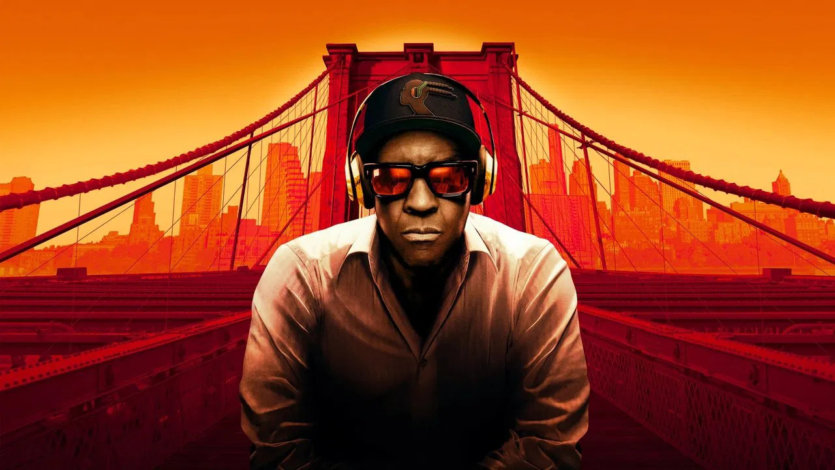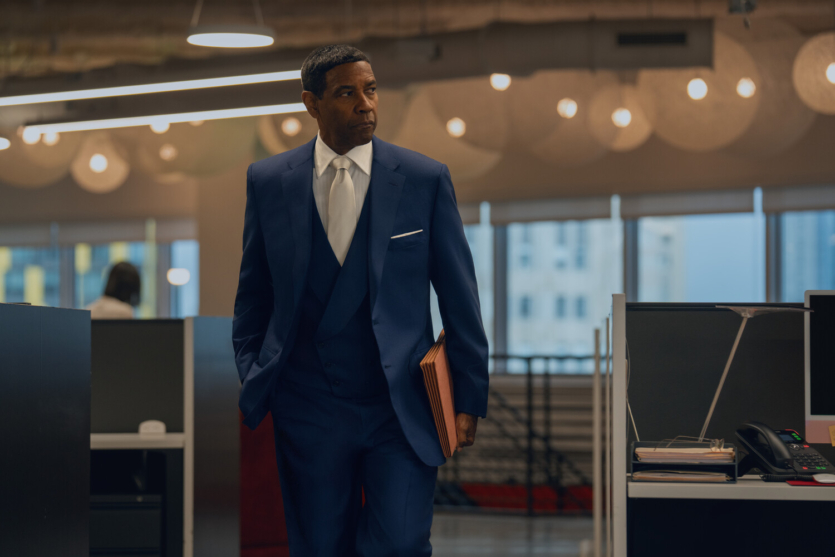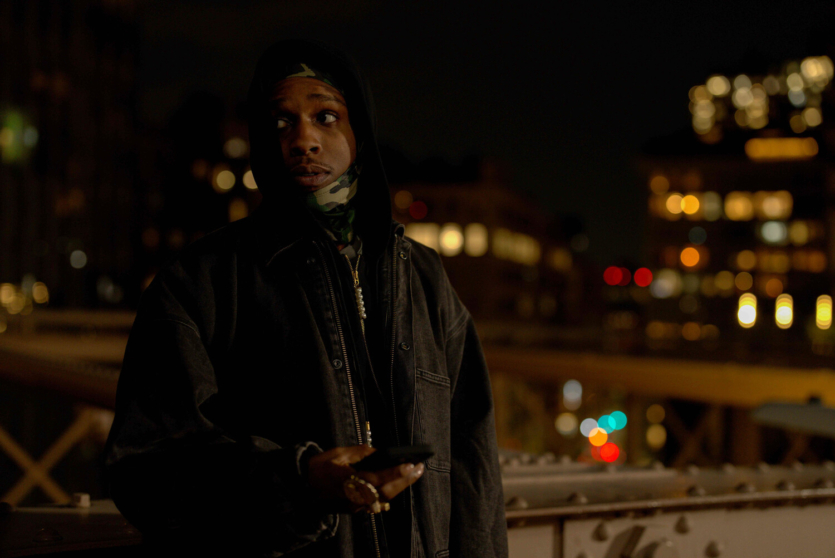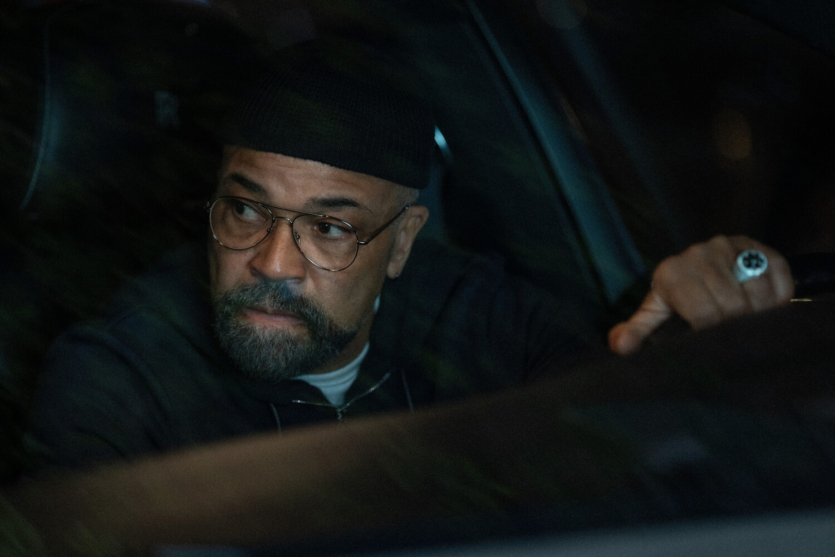
On September 5, Apple TV+ platform released the crime-detective thriller Highest 2 Lowest by American director Spike Lee starring Denzel Washington. The plot of the film is based on the novel The King’s Ransom (1959) by Ed McBain and is an English-language remake of Akira Kurosawa’s classic High and Low (1963). In the review below, we describe what constitutes a modern reinterpretation of this story of misguided kidnapping.
“Highest 2 Lowest”
Genre crime thriller, detective
Director Spike Lee
Starring Denzel Washington, A$AP Rocky, Jeffrey Wright, Ilfenes Hadera, Ice Spice, Dean Winters, John Douglas Thompson, Lashanz, Aubrey Joseph, Anthony Ramos
Premiere Apple TV+
Year of release 2025
Website IMDb
David King once founded the music label Stackin’ Hits Records, which eventually became extremely successful and profitable. Today, David has a luxurious apartment in a fashionable neighborhood in New York City, fame, a reputation, a beautiful wife, and a teenage son who shows promise in basketball. But at first glance, this ideal life is nothing more than an illusion, because the tectonic changes in the music industry (in one of the dialogues, the phrase “AI — the future of music“) have led to the fact that David’s company is being taken over, and he is not happy about it.
But King’s real problems are just beginning when he receives a phone call from an unknown caller claiming to have kidnapped his son and demanding $17.5 million. Later it turns out that there was a mistake during the kidnapping, and it was actually the son of David’s driver and good friend Paul who was in trouble. However, this does not change anything for the kidnapper, and the protagonist faces a difficult moral choice, because saving someone else’s child will cost him his musical brainchild, to which he has devoted many years of his life.
If you are familiar with Spike Lee’s work, you probably know that his films are primarily focused on the African-American community and its characters. For example, Denzel Washington was nominated for an Oscar, a Golden Globe and a Silver Bear at the Berlinale for his role in the biopic Malcolm X (1992), which is dedicated to the famous African-American activist. And BlacKkKlansman (2019) was nominated for six Oscars, including Best Picture, Adapted Screenplay, and Director.
By the way, this is not the first time Lee has collaborated with Denzel, in 35 years, even if the last time they met was almost two decades ago on the set of the crime thriller Inside Man (2006). And remakes are not new to the director either — we recall his version of the cult Oldboy (2003) by Park Chan-wook, which turned out to be quite controversial.
So it probably won’t come as a surprise to anyone that Spike Lee’s remake of Kurosawa’s Heaven and Hell differs significantly from the original, even though the plot is essentially the same. In addition to the fact that the director has modernized the story, it has undergone a noticeable shift in emphasis.
Almost immediately, the viewer is literally thrown into the luxury in which the protagonist and his family are accustomed to living: a luxury apartment with a magnificent view of the Brooklyn Bridge, lavish artwork on the walls (among which it is difficult not to notice references to Kurosawa’s classics), expensive suits, jewelry, and so on. King’s name alone is telling. And at first, all of this suggests that Lee will follow in the footsteps of his famous Japanese colleague in terms of motivation for the kidnapping. But it is not for nothing that the shoe factory manager, played by Washington-based Mifune Toshiro was turned into a music mogul.
The problem with Highest 2 Lowest is that Spike Lee tries to accompany this thriller/detective with a bizarre form and some questionable script and directorial decisions.
For the former, the inappropriate logo in the editing splices, the change of the digital image to the one typical of film cameras in just a few episodes, and the confusing music score will be indicative. Almost all the time, it is completely at odds with what is happening on the screen. This approach can only be justified in the scene of the kidnapper’s chase, where the tension is diluted by lighthearted Latin American singing and dancing: this makes us realize that not only we are uncomfortable at the screen, but the characters are as well. The second concerns the content in general and specific episodes in particular.
The original’s main point about blatant class inequality is practically nullified here, but no clear statement comes from Spike Lee. Well, yes, the cops treat Washington’s character with much more respect than they do his driver, Paul, who is also an ex-convict. And the only white cop, let’s just say, is much less sympathetic than the others.
Somewhere in the background, there are passages about the importance of public opinion (and, as a result, about the culture of cancellation) and the ruthlessness of capitalism, and this somewhere echoes Kurosawa. About money and fame. But all these nuances together, firstly, are clumsily confused with each other, and secondly, they do not provoke one to perceive the film as something authorially sane and ideologically significant.
Questions also arise about the protagonist’s “relationship” with the antagonist, whose identity will not be revealed for obvious reasons. While Kurosawa’s villain was a cunning, envious bastard, Lee’s is a common, arrogant fool.
In general, it turned out to be somehow tonally uneven and a bit strange both in content and form. There are some interesting moments and space for Denzel Washington’s acting, which is good. But the film lacks an ideological core so that after watching it, the viewer can honestly admit to himself that these two-plus hours on the screen were not in vain.


Spelling error report
The following text will be sent to our editors: